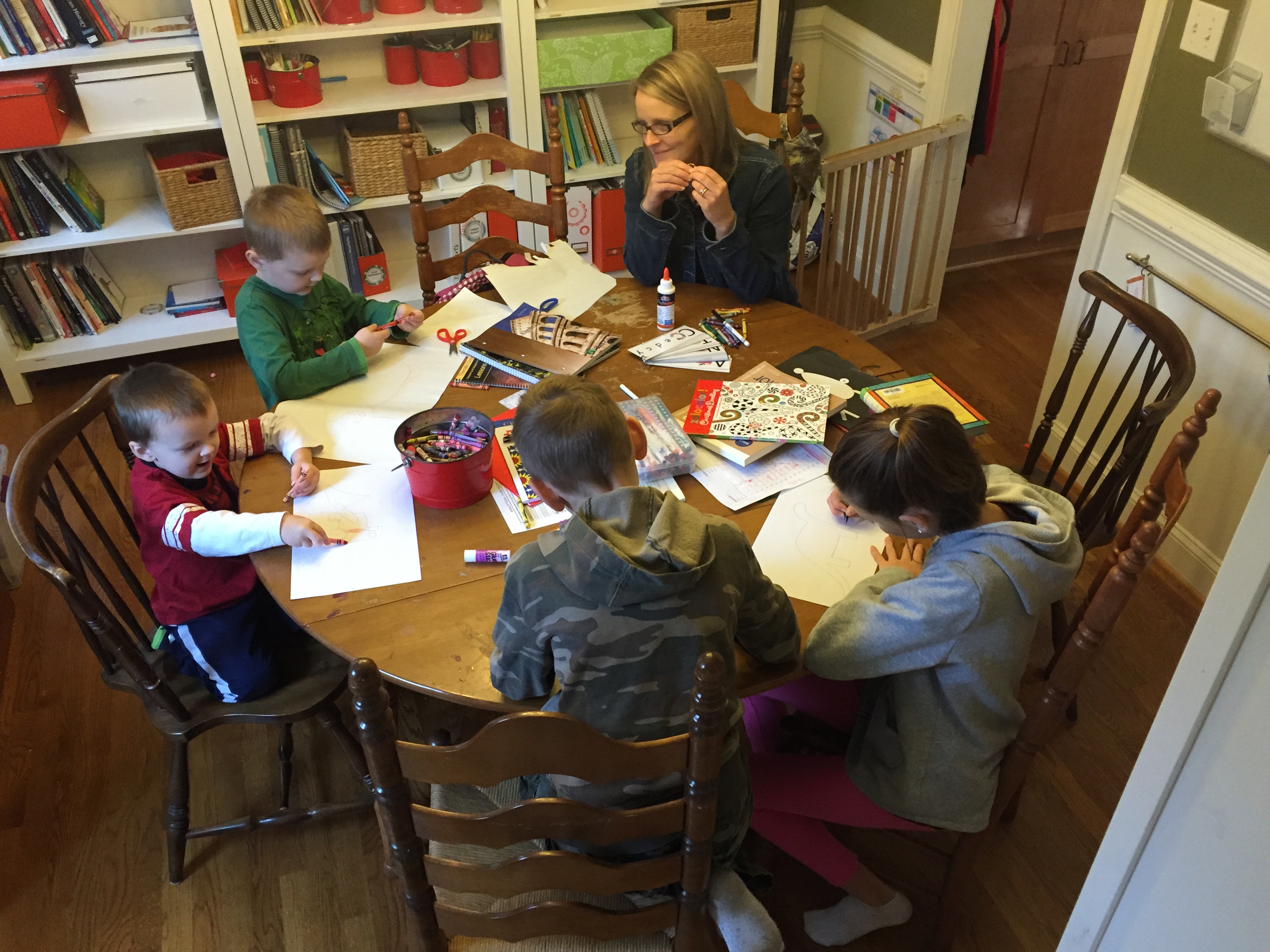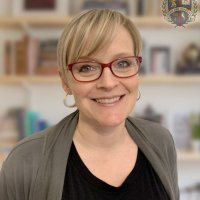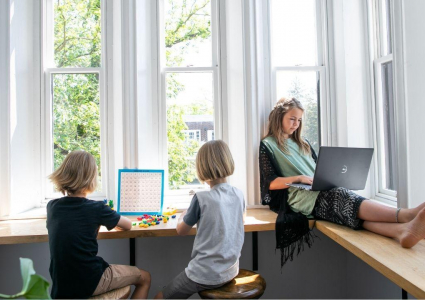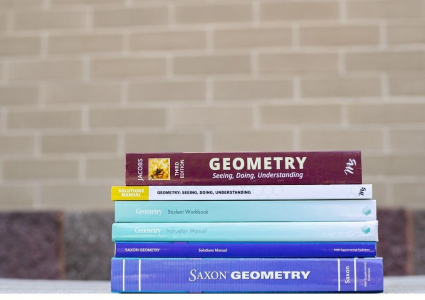Learning Through Learning Disabilities

“C... a... t...” she slowly sounded out as we sat on the couch. “C... a... t... Camel?” “No, honey. Try again. Sound out the letters that are on the page,” I sighed.
“C… a… t…. Camel!” She said for the fourth time. Each time, I had patiently told her that it was not correct, redirected her to the letters, and had her try again. Each time, she tried, then her eyes drifted to the picture of a camel on the next page.
“NO! It is not camel! It was not camel the first time you said it, nor was it the second, or the third, or the fourth. Please read the letters that are on the page.” And don’t say camel again…
What in the world was going on? She was not my first child. I’d done this before. Every child is different, yes, but there was something else here. Day in and day out for months, we would take two steps forward, two steps back. Two steps forward, three steps back. One step forward. Repeat. In case you counted there, we actually were not moving anywhere.
We have five, beautiful, wonderful children. They are, for the most part, healthy, happy, and look completely “normal.” Below the surface, though, each child is unique, with his or her own struggles and strengths. Our only daughter is funny, beautiful, and an amazing artist. Teaching her at home has been a privilege, but it has also been one of the hardest things that I have ever been asked to do.
From the very beginning, I knew she was different than her older brother. As she grew, I could also see that she was different from her peers. She talked later. She talked less. When asked to do things, she remembered—sometimes. She wasn’t interested in listening to books. She could not repeat phrases when asked. Initially, I attributed all of this to personality, quirkiness, and stubbornness, but I now know that there was much more to it.

Our journey with a child who has both ADHD and a learning disability has been fraught with difficulty, but I am now able to see how God has used it to bless us, grow us, and show us His mercy. That doesn’t mean it was easy. There have been many sleepless nights and many tears.
Maybe you are experiencing some of the same things. If this is where you find yourself, I want to share with you five things I have learned over the last 17 years. They won’t take away any of the work in front of you nor (most likely) the heartache you may feel, but it is my prayer that my words can serve as seeds of encouragement as you walk alongside your child.
1. God gave your child to you. And He gave you to your child.
I thought about putting this last, like some happy, fluffy, feel-good summary after my practical advice, but the truth is, well, this is the truth. The God who created the universe and holds it in the palm of His hand divinely ordained me, with all of my shortcomings and warts, to be the mother that He chose to train my daughter up in wisdom and righteousness. He chose her to refine me, to humble me, to grow me, and to show my desperate need for Him. He chose this because He knew before the beginning of time what was needed in order to bring about His good purpose. If He calls me to a task, He will faithfully provide all I need to obey.
“And my God will supply every need of yours according to his riches in glory in Christ Jesus.” (Philippians 4:19, ESV)
2. You will mess it up.
Let’s just be honest: we are not going to do it all right. We will pick the wrong curriculum. We will lose our temper. We will create gaps. It’s going to happen.
The first two years were… let’s say rough. There were many tears (from both of us), many curriculum changes, and more than a few moments in which I lost my patience. My mother taught to never underestimate the power of an earnest apology (and the grace of God). She taught me, in word and in deed that confessing our sin to the Lord and humbly apologizing to those we have hurt paves the way for restoration. We will not live perfect lives, but God is big enough to use our mistakes if we will turn to Him.
“If we confess our sins, he is faithful and just to forgive us our sins and to cleanse us from all unrighteousness.” (1 John 1:9, ESV)
I learned to ask forgiveness from my daughter, quickly and often. And she has given it—every time.
3. One size does not fit all.
Our firstborn had known his letters by the time he was two, could do addition and subtraction at three, and remembered everything he was told—the first time. In my mind, repeating the same techniques with our daughter should have had the same results, but clearly things were not going to plan. I had bought curriculum for him, telling myself that I would re-use it with her. When it came time to teach her, I pulled it all out, confident in my ability to achieve the same results with the same minimal efforts. And now I had this sweet little girl who struggled with… everything.
Well-intentioned friends would say things like, “Oh, she struggles with math? Well, she must be good at reading!” Nope. “Oh, she struggles with reading? She must be good at writing!” Negative. Name the subject, and we struggled. WE struggled. Not just her.
The idea that every child will learn in the same way is a fairytale. If something is working, great. Do NOT switch it. Yes, there will be something else out there that is prettier or fancier or checks some other box in our idealized minds, but it doesn’t make it better for your child. If the boring, black-and-white, no-nonsense math program is helping your child to understand math facts, use it!
On the other hand, if something is not working, that does not mean it needs to be tossed (although it might). Curriculum is a tool that we use to educate our children. It is not the education itself, nor is it the master. When something isn’t working, ask yourself some honest questions. Sometimes, all that is needed is to cut out some of the extras, or to add a small supplement, or to adjust the wording of the instruction. Other times, the curriculum is beyond saving. Don’t be ashamed to drop it—even mid-year. Learn from your mistakes (see point #2), trust that God is growing both of you (see point #1), and move on.
4. Beware of being “behind”
During her elementary years, I pushed hard to help her “catch up.” Every year, she did extra math to get to grade level. One morning, I remember clicking on an article by Steve Demme that warned about being behind. I knew she was behind, and I didn’t know what to do. Imagine my shock when the author admonished, “… in 20 years, will it make a difference whether your student is studying fractions when he is 10 or 12? The primary indicator is a child’s readiness and math background, not his age, or God forbid, his grade level…” A sense of peace settled over me about math, and I could slow down and rest in the decision to allow her to learn at a pace she could sustain.
Apparently, I am a slow learner, though, because this did not stop me from pushing in other areas. In fifth grade, I had her reading ability tested. She was “behind,” so we spent a year drilling and killing on reading. Have you used that phrase before? Drill and kill? There’s not a lot of joy in those words.
It was about this time that I came to the honest realization that many of the struggles that we were having were exacerbated by my pride. I didn’t want to slow down because I didn’t want people to think that I had not done a good job homeschooling my child. Me, me, me. I didn’t want to look bad.
“Train up a child in the way he should go; even when he is old he will not depart from it.” (Proverbs 22:6)
Did you notice that Scripture does not say, “Train up a child so he can perform well; even when he is old, others will notice what an amazing job you did raising him?” In the darkness of my soul, I had pulled, forced, and shoe-horned her through school so that other people could see what a good teacher I was. Another opportunity to confess my sins, both to the Lord and to my daughter. At the end of that year, we decided to hold her back. It was one of the best decisions we ever made.
5. Labels are not the enemy.
For the first dozen or so years, I never once considered having her tested. I didn’t believe in all the popular “diagnoses.” ADHD? Those kids just need more exercise. Auditory processing? Those children just aren’t being taught in a meaningful way. This is what homeschooling is for, finding the methods that work and employing them. Labels were excuses for people who didn’t want to do the work, right?
When she was about eight, I went to the pediatrician. Alone. I wanted to speak frankly without risking upsetting her. I smile when I remember the look on his face when he walked into a room devoid of children. He listened patiently, mentioned ADHD or auditory processing disorder (which I dismissed), and told me in no uncertain terms, “Mrs. Krebs, regardless of the diagnosis, the best thing you can do for her is homeschool.”
I was shocked, really. I thought for certain he would tell me to send her to the experts in the school system. And I was ready to do it. Weren’t there specialists there that knew how to deal with this? But his words encouraged me to continue.
When she turned 13, we were at the end of our rope again. We returned to the pediatrician, and he led us to an eventual (first) diagnosis of ADHD. We began some appropriate therapy for her, and gradually, the growth began. School was hard, but it was possible. Handwriting became legible. Reading became smoother. Math mistakes began to decline. Consistency in performance rose. Things improved in so many ways after that. She was able to learn without so much stress. She was more emotionally stable. Fewer tears. Real progress.
We finally had her tested when she was 16. It took me that long to admit that there was more to her struggles and that a label might not be a bad thing (see point #4 about my pride). Labels are a funny thing. They don’t define our children, but they can describe them. They aren’t excuses, but they can explain certain things. They don’t put limitations on what they can do, but they do help illuminate areas that might be struggles or strengths.
In college, I was a competitive rower. I was strong and technically solid, but I was not as fast as some of the other rowers because I was (and still am) short. If I wanted to keep up, I had to run faster, lift heavier, and push harder than some of my peers. Using the label “short” did not change anything about me, but it did help me to understand areas that I might have to make adjustments.
Knowing that our daughter has ADHD as well as a specific learning disability does not change, limit, or define who she is. It does not change her prospects in life. It allows her to understand why some things are harder for her than they are for others. It also helps me to identify parts of curricula that might not suit her well or need to be adjusted or omitted. If she has specific weaknesses, I can help her strengthen those areas at her level.
In fact, I would even argue that “labeling” her has improved her outlook and self-esteem. She has a learning disability, but she is not clueless. She knew before she was labeled that she was not like everyone around her. Having a name for her struggles allows her to see her differences and work with them instead of wondering what is “wrong” with her.
“For you formed my inward parts; you knitted me together in my mother’s womb.” (Psalm 139:13, ESV).
God does not make mistakes. He designed her this way, on purpose—and for a purpose; He has created her to do mighty things for Him.
And He did the same for you and for your child. He loves us, and He knows what is best. If we get nothing else right in all of our efforts to educate our children, teaching them to trust Him and obey His will for their lives will be more than enough. In fact, if we get everything else “right” but lose on that front, our efforts will be for nothing. So rest in knowing that if there had been someone else who was better suited to do this, God would have chosen them—but He didn’t, so you are the best choice! Through His grace, you can do this.
“And I am sure of this, that he who began a good work in you will bring it to completion at the day of Jesus Christ.” (Philippians 1:6, ESV)







